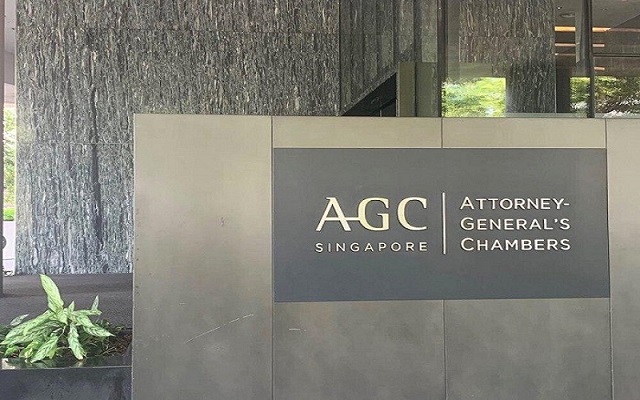CLD Interest Pieces, OTG
Into the Minds of Prosecutors

When news broke that the couple who had caused the death of intellectually disabled Annie Ee faced charges of voluntarily grievous hurt with a dangerous weapon rather than murder or culpable homicide not amounting to murder, many netizens were unhappy. They took to social media to voice their displeasure with the prosecutors for proceeding with a less severe charge, with some even signing petitions on the matter.
The AGC later explained that the prosecutor’s duty was to prefer charges supported by evidence, and the evidence showed that while Annie Ee was beaten severely, she died of a fat embolism, which is something that would not normally result from her injuries. Because of these circumstances, the offences of murder and culpable homicide not amounting to murder could not be proved against them.
Incidents such as the above made us curious about what exactly prosecutors do, and about how they exercise their prosecutorial discretion. Lucky for us, we were given the rare opportunity to interview Chief Prosecutor Mr Kow Keng Siong and Deputy Public Prosecutor Mr Chin Jincheng to find out more!
The work of a prosecutor
Making charging and sentencing decisions
We started the interview by asking about how a prosecutor goes about the daunting task of making a charging decision, seeing as this can be a matter where reasonable people may hold different views. Mr Kow explained that a prosecutor assesses many factors, including whether there is sufficient evidence to make out an offence, whether it is in the public interest to prosecute, and what charge is to be preferred.
Prosecutors take their work very seriously, as the lives of victims, the accused and even witnesses can be forever changed by their decisions. Because of this, much of their time and effort is spent on scrutinising the evidence and directing further investigations if needed when deciding whether there is a public interest to prosecute.
When deciding whether to prosecute, prosecutors will consider, for example: Will prosecution deter the offender and other like-minded people? Will it prevent further crimes? Will the likely punishment be proportionate? Can prosecution help to rehabilitate the accused?
While we understood the idea of prosecuting for retribution, crime prevention and deterrence, we found the idea of prosecuting someone to ensure rehabilitation to be somewhat unusual. When asked about this, Mr Kow explained that on the occasions when an offender is prosecuted for the purpose of rehabilitation, it is intended to address the offender’s root cause of crime. For example, prosecuting a young offender (or an at-risk delinquent) so that he may be steered away from crime through probation or reformative training. Similarly, mentally disabled offenders may sometimes be prosecuted so that they may be subjected to a mandatory treatment order in order to treat their mental condition where this is the root cause of the crime.
This was interesting to us, as you would assume that it would be the defence counsel who suggests rehabilitative sentencing options for youth or mentally disordered offenders. It turns out that being a prosecutor is so much more than pushing for the highest possible sentences – it involves not only the consideration of the victim’s interests, but of the offender’s and community’s interests as well.
Given the huge weight that rests on a prosecutor’s shoulders when having to make difficult charging decisions, we were curious about the decision-making process. As it turns out, the AGC has a very strong culture of encouraging its officers to speak up and appreciating different viewpoints. Mr Kow and Mr Chin shared that prosecutors often engage in robust and candid discussions, and the views of each prosecutor, no matter how junior, are valued. Decisions are made only after all views have been properly ventilated and critically considered. Mr Kow believes that it is this willingness to consider and rationalise the diversity of views that makes good decisions.
As most law students would know, the hierarchy of power at a workplace is sometimes so deeply entrenched that junior associates, let alone interns, do not dare to voice their opinions. So, it was reassuring to hear that at the AGC, not only do juniors get a chance to speak up, their opinions matter. Believe us when we say that prosecutors really are interested in what others have to say – after about an hour of speaking to Mr Kow and Mr Chin, Mr Kow actually got us to share about our schooling experiences (I tried but failed to put a positive spin on company law – my apologies to all our company profs).
Going to court
Another important and more visible part of a prosecutor’s work is to conduct a prosecution or argue an appeal in court. While litigation work is stressful, Mr Kow shared that AGC has a nurturing and sharing environment where colleagues do not hesitate to help one another. Colleagues often give advice on legal or practical points, share case authorities, provide comments on draft submissions, act as a goal-keeper for junior colleagues’ cases, and even take over others’ cases when necessary.
As students, we all know about the woes of mooting and how litigation is kind of a more intense and scary version of mooting, with much higher stakes. Having to litigate without a support system would be immensely intimidating to a young lawyer- but at the AGC, you would not have to worry about this due to the open and welcoming network available to you.
Policy work and other initiatives
Another part of a prosecutor’s work which is less visible is working on initiatives with government ministries and law enforcement agencies to improve the administration of criminal justice system in general, and to improve the effectiveness and efficiency of AGC’s Crime Division in particular. Such work typically entails working with stakeholders to ensure that the criminal justice system remains fair and transparent.
Policy work is something we don’t hear a lot about when we talk about prosecutors, so it was great to learn about how prosecutors actually play a role in developing the governmental policies that govern us.
On public opinion
Often times, when a particularly controversial case surfaces, public opinion that arises as a result can be divisive and harsh.
We asked Mr Kow about his views of the public expressing their views on controversial cases, such as the Annie Ee case.
Given the nature of the cases, Mr Kow said that it is only normal for the public to hold views about the cases. In fact, Mr Kow would find it odd if an individual does not have a view. That said, he advised that before expressing an opinion, especially in forceful terms, an individual should take every effort to fully understand the facts and issues behind the case – and not pass quick judgement or make speculations simply based on e.g. a headline or an article that does not contain the full background. Expressing an opinion based on preconceived notions and conjecture, instead of facts, is not only unfair to the party being criticised and unhelpful for an informed discussion on the issues at hand, but can also be divisive and dangerous.
In this context, Mr Kow shared that an old Canadian TV series (which he enjoyed a lot) that illustrates his point about the dangers of forming impressionistic opinions is ‘Flashpoint’. He explained that an episode in that series would typically open with a tense hostage situation which portrayed the hostage taker as a villain. The episode would thereafter “rewind” back to several hours before the opening scene, and reframe the hostage taker as another ordinary human being, and the events and issues that put him into the hostage situation.
We found Mr Kow’s illustration to be a great way to drive home the adage that we should not judge a book by its cover, and that it is important for us to suspend judgment about decisions made by the AGC/the court until more information is available. (We also found that Flashpoint has pretty good ratings, so…check it out, because I’m sure Mr Kow recommends it!)
Advice to law students
Before ending the interview, we asked Mr Kow if he had any advice to us law students. His advice is as such:
- Be purposeful – Know why you are studying law
- Be aware – The practice of law is not going to be easy, but it can be deeply fulfilling
- Be discerning – Find a workplace where you like and can identify with its culture
On the last point, both Mr Kow and Mr Chin shared that they enjoyed working at AGC tremendously – to be in the company of passionate people who make daily personal and family sacrifices so that others may find and receive justice, and in the process, help advance the law.
If you have a keen interest in criminal law and you would like to further the interests of justice, you should seriously consider an internship at the AGC. According to Ashna (co-writer of this article), her AGC internship under the Junior College Law Programme was an eye-opening experience which made her choose to study law in the first place.
You can also sign up for the NUS Law School elective module “Advanced Criminal Legal Process” which Mr Kow co-teaches. The module offers students a unique perspective into real-world criminal litigation processes through the lenses of a broad spectrum of stakeholders, including judges, prosecutors, law enforcers, and legal practitioners.
We hope that this article gives you sufficient insight into the mind of a prosecutor. Who knows, maybe the life of a prosecutor could eventually suit you too one day!
Originally published on the previous CJC website on October 26 2019.
Ashna Khatri and Alvina Logan
*The views and opinions expressed in this article do not constitute legal advice and solely belong to the author and do not reflect the opinions and beliefs of the NUS Criminal Justice Club or its affiliates.



